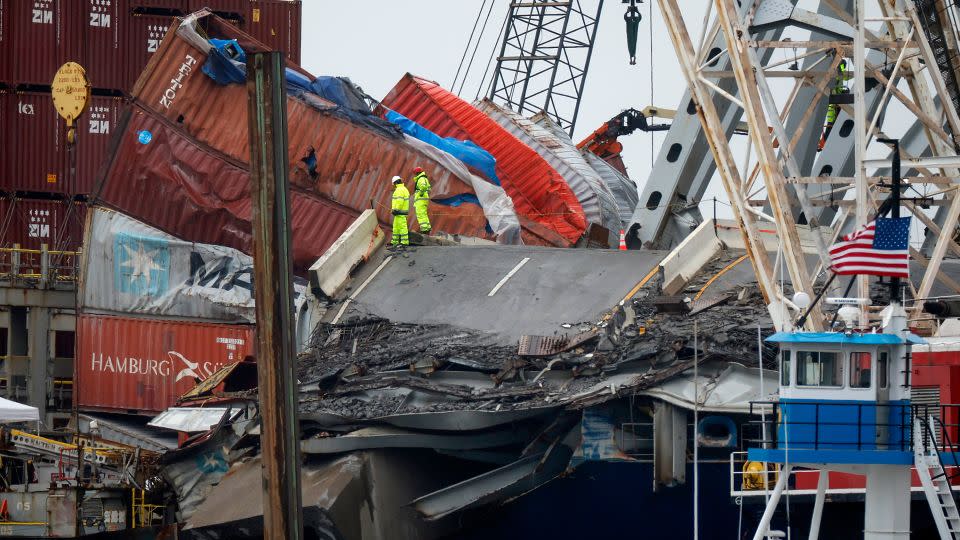
The controlled demolition of a section of the Francis Scott Key Bridge, which collapsed onto the Dali cargo ship in March, was postponed due to adverse weather conditions. The bridge, which is 500-feet long and 600-tons heavy, will be broken down using explosives. Six construction workers died in the incident and their bodies were recovered on Tuesday. The demolition was initially scheduled for Saturday but was postponed due to poor weather conditions, including lightning within ten miles of the site. It is now tentatively scheduled for 5 p.m. Monday.
The Dali cargo ship, which lost power and collided with a bridge support column on March 26, has been secured at the site since then. The precise cause of the bridge collapse is still under investigation by various authorities, including the National Transportation Safety Board.
Once the demolition is complete, surveys will be taken and the goal is to refloat the Dali ship two days later at high tide. The new Francis Scott Key Bridge, which will replace the old one, is expected to be constructed by 2028 at a cost between $1.7 and $1.9 billion.
The controlled demolition of the bridge section will mark a significant step in the salvage operation to free the Dali cargo ship from its current position. The explosion will last just a few seconds and is expected to sound like fireworks or loud thunder, with puffs of smoke appearing as a result. People within 2,000 yards are advised to wear hearing protection during the blast.
The 21-person crew aboard the Dali cargo ship will remain in place during the demolition. Afterward, authorities will survey and then push the vessel by tugboats to the Port of Baltimore's Seagirt Marine Terminal for further analysis.
The clearing of the shipping channel, which has been closed since the bridge collapse, is expected to bring an economic boost for the Port of Baltimore once it reopens. The precise cause of the disaster remains under investigation.








